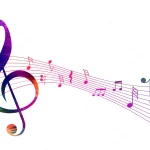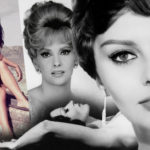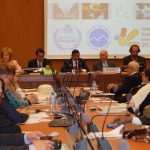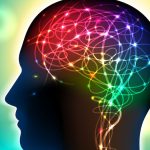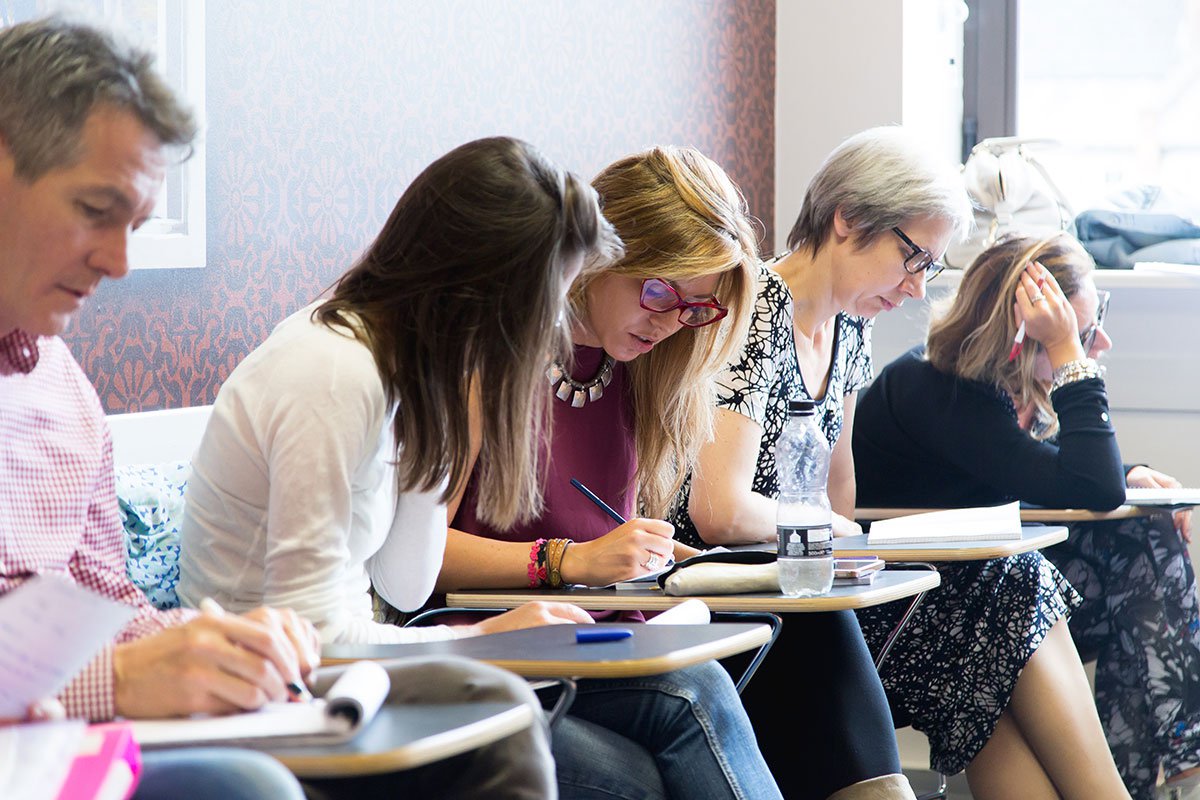DIPLOMA/BA IN ENGLISH LANGUAGE
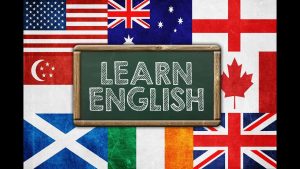
DIPLOMA IN ENGLISH LANGUAGE
Composition & Comprehension – Total 60 Hours
- Essay Writing
- Letter Writing
- Personal Letter Writing
- Official Letter Writing
- Precis Writing
- Confused Words
- Idioms
- Punctuation
- Comprehension
Selected Paragraphs & Poems
Grammar – Total 60 Hours
- Nouns
- Introduction
- Animate / Inanimate Nouns
- Proper / Common Nouns
- Verbs
- Introduction
- Lexical – Regular / irregular Verbs
- Auxiliary – Primary / Modal
- Transitive/ intransitive/ di-transitive/ intensive
- Adjectives / Adverbs
- Common Adjectives / Participle adjectives
- Positive / Comparative / Superlative
- Adverbs / Adverbials (Time/Place/Manner/Degree/Affirmation/Interrogation/Reason/Relative)
- Pronouns, Articles & Determiners
- Personal/Possessive/Reflective/Reciprocal/Demonstrative/Relative/Interrogative/Indefinite
- “A “, “An”, “The”
- “There”, “here”, “that”, “this” etc
- Conjunctions
- Introduction
- Co-ordinate & Subordinate Conjunctions
- Relative Conjunctions
- Relative Clauses/ Noun Clauses/ Adverbial Clauses
- Prepositions
- Prepositions of Time
- Prepositions of Place
- Nouns + Preposition
- Adjective + Preposition
- Verb + Preposition
- Tenses
- Present & Past – Simple / Continuous
- Present & Past – Perfect /Perfect Continuous
- Present & Past – Negative / Interrogative
- Future
- Shall/ Will/ Would/ Could
- Going to
- Am Doing / I do
- When I do/ When I have Done
- Direct & Indirect Speech – (including Tenses)
- Active / Passive Voice
Speech & Pronunciation – Total 60 Hours
- Problems in Pronunciation
- Introduction – Which English – Problem Sounds (consonants and consonant clusters)
- Lending Your Ears – Listening and practicing sounds.
- Sound Symbols – (phonetics) – Consonants/ Direct Vowels/ Diphthongs/Triphthongs
- Syllables
- Sound Groups, Words & Utterances
- Production of Speech Sounds
- Speech Organs
- The Vocal Cords
- The Palate
- The Teeth
- The Tongue
- The Lips
- Consonants of English
- Friction Consonants
- Stop Consonants
- Nasal Consonants
- Lateral Consonants
- Gliding Consonants
- Vowels of English
- Simple vowels
- Diphthongs
- Triphthongs
- Words in Company
- Words, Groups & Stress
- Stressed and unstressed syllables
- Weak Forms of Words
- The Use of Strong Forms
- Changing of Word Shapes
- Intonation
- Tune or Tone Shapes
- The Falling Tune – (The Glide Down)
- The First Rising Tune – ( The Glide up)
- The Second Rising Tune – (The Take Off)
- The Falling – Rising Tune – (The Dive)
BA in English Language & Literature Programme
ENGLISH SYLLABUSES
Explorations in Literature I and II
These units introduce students to methodological and other problems involved in the study of literature from a wide range of periods. They aim to provide a literary context for works which will be studied in later years and to promote a sense of literary history as an active process of development and change.
Students choose well-known texts to study which have appeared at any time from 2500 BC to the twentieth century. The feature common to all the texts is that they have been considered important in the history of Western literature.
Students will consider historical, contextual and other problems raised by the individual texts, as well as relationships between texts. This may involve looking at the direct influence of one text on another, different ways in which different texts treat the same issue, or differences in particular aspects of the texts, eg the way characters are represented, the construction of narratives, the use of figurative language.
No specific works of criticism, or other background reading, are prescribed for either unit. Instead, students are expected to prepare their own study programme, based on advice offered in the relevant subject introduction and the handbook.
Explorations I
This unit deals with texts produced before 1600 together with Hamlet and The Tempest. The paper will be divided into two sections. Two questions must be chosen from a range of individual texts, and one question from a range which involves comparing at least two texts with regard to specific issues.
The texts to study must be chosen from the following list:
HOMER: The Iliad, the Odyssey;
SOPHOCLES: Oedipus Rex;
VIRGIL: The Aeneid;
OVID: Metamorphoses;
PLATO: The Symposium; The Bible;
(selection from the KING JAMES VERSION) DANTE: The Inferno; Sir Gawain and the Green Knight;
CHAUSER: The Canterbury Tales; Everyman and Medieval Miracle Plays (Everyman);
selections from The New Oxford Book of English Verse;
SHAKESPEARE: Hamlet, The Tempest;
MARLOWE: Tamburlaine, Dr Faustus.
Explorations II
This unit deals with texts produced since 1600. The paper will be divided into two sections. Two questions must be chosen from a range of individual texts, and one question from a range which involves coparing at least two texts with regard to specific issues.
The texts to study must be chosen from the following list:
Selections from The New Oxford Book of English Verse and from Metaphysical Poets (Penguin);
MILTON: Lycidas;
FIELDING: Joseph Andrews;
WORDSWORTH and COLERIDGE: Lyrical Ballads;
BLAKE: Songs of Innocence and Experience;
SWIFT: Gulliver’s Travels;
AUSTEN: Sense and Sensibility;
BRONTE; Jane Eyre;
DICKENS: Great Expectations;
HARDY: Tess of the d’Urbervilles;
CONRAD: Heart of Darkness;
WOOLF: To The Lighthouse;
JOYCE: Portrait of the Artist as a Young Man;
BECKETT: Waiting for Godot.
Approaches to Text
This unit considers a range of problems involved in interpreting literary and non-literary texts and introduces basic terminology and concepts involved in analyzing texts. Interconnections between interpreting texts in different media will also be examined.
Students will be encouraged to identify and articulate responses to questions involved in interpreting texts, to develop problem-formulation skills and to work out their own ‘study-agenda’.
More specifically, the syllabus aims to: enhance understanding of what constitutes a text (books, images, compact disks, films, drama productions, etc.); introduce basic terminology and concepts used in analyzing texts (eg metre, metaphor, point of view); demonstrate how all acts of interpretation or commentary involve ‘theoretical’ assumptions and positions – even if such concepts are not explicitly acknowledged; bring out interconnections between interpreting texts in an academic context and elsewhere, in the rest of daily life.
During study for this unit, students will develop a glossary of key terms used in textual description and analysis, and examine why the concepts dealt with matter in practical analysis of texts in a range of media (including not only books, but also magazine and journalism, photographs, paintings and other images, TV and film, popular music). Examples will be drawn from more than one medium or genre; but the analysis of literary texts will provide a central strand of case studies.
Among concepts which students may choose to study are: codes and languages; structure and semiology; register; genre; figurative language; allusions; rhyme; metre; narrative; intention, authorship and reception; unconscious meanings; dialect; ethnicity; texts as historical documents; gender; narrative in visual images; photography and truth; dramatic performances as texts; questions of value.
The paper will be divided into two sections. In the first section one question must be answered in which students will be invited to comment on one of a range of extracts from verbal and visual texts using terminology and concepts studied (some of the questions may also involve comparing more than one text or extract). In the second section two questions must be answered, discussing some of the topics covered by the unit, using relevant examples.
Preliminary reading:
A DURANT and N FABB (1990)
Literary Studies in Action:
M MONTGOMERY, A DURANT, N FABB, T FURNISS and S MILLS (1992): Ways of Reading: Advanced Reading Skills for Students of Literature.
Personal Study Programme
This unit encourages students to formulate and complete their own programme of study.
Students will develop a series of projects, using skills and concepts gained in the foundation skills. Some projects may be similar to work done in the other foundation units, and some may focus directly on establishing a link between the courses. Other work may address issues not considered elsewhere in the BA programme, eg changing attitudes to English as an academic discipline.
Particular study programmes may include: a detailed examination of one work of author; comparison of works or authors with regard to a particular issue or theme; more detailed examination of concepts or problems introduced inApproaches to Text; studies of particular genres or literary concepts; an examination of writing techniques.
Attention will be given to all phases of the programme, from deciding on a topic to editing drafts and preparing final copies of work.
No specific reading is prescribed for this unit. Instead students are expected to work out what they will read for themselves, following advice given in the relevant subject introduction and the handbook.
In the paper, students will be expected to demonstrate that they have undertaken some original work which is not entirely derived from work on any of the other foundation units. The range of topics covered will include the areas of literary, theoretical, generic and conceptual studies.
| Language and Style 1 | |||||||||||||
| The Making of English I | |||||||||||||
| English Language Recommended Elective Group – Autumn level 1 | |||||||||||||
| Current Social Issues in English Language II | |||||||||||||
| Language and Style II | |||||||||||||
| The Making of English II | |||||||||||||
English Language Recommended Elective Group – Spring/Summer level 1
|
